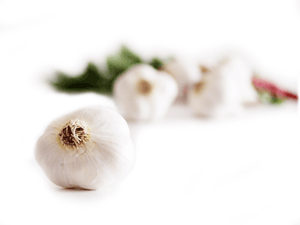
 |
|||||
|
|
|
|
|
|
|
The Making of Italian Food...From the Beginningby Roberta Roberti |
|
|
Have you ever wondered why foods from different countries seem so similar, even though
the cultures are completely different? The answer is simple: Humans have always traveled.
Nations have exchanged knowledge and skills-voluntarily and involuntarily-and as
people moved around, they brought their culinary skills with them. The effects are
keenly seen in Italy. From the Middle East to the Far East and back around to the
New World, other cultures have impacted the cuisine of Italy since before recorded
history. Precursors to today's foods have been identified in cave drawings and early
written documents. Whether the influence was requested or imposed, it was all embraced.
The result is one of the most complex culinary histories of Western Europe.
Antiquity Post-Roman Empire Arab Muslims had dominion over Sicily more than once and at one time ruled for about 250 years. During their reign, they introduced foods that would become integral parts of Italian cuisine, most notably rice, lemons, and artichokes. Consequently, the Italian language is heavily laced with Arabic. The Italian word for artichoke, for example, carciofo, derives from the Arabic al kharshuf. The eggplant, believed to be originally from India, was introduced to Italy via Spain by the Moors (Spanish Muslims), and the spice caravans supplied Western Europe with Middle Eastern items throughout the centuries. Coffee, the beloved beverage of all Italians, was also brought in from the Arab world. "Coffee" comes from the Arabic qahwah, originally meaning "wine." Since Muslims were forbidden to drink wine, coffee became its substitute, and when it reached Europe, it was dubbed "wine of Arabia." The Christian Church denounced it as a "Satanic threat to the soul," but it was just too enticing. Pope Clement VIII proclaimed, "Why, this Satan's drink is so delicious it would be a pity to let the infidels [Turks] have exclusive use of it. We shall fool Satan by baptizing it, and making it a truly Christian beverage." |

Another staple of Italian food is the tomato. It was introduced to Italy in 1522 by the Spanish, who ruled over the kingdom of Naples. They had picked up the tomato in Peru, where it was known by the Mayan word xtomatl. (Although if you ask Neapolitans, they'll tell you that Neapolitan sailors brought the tomato into port themselves.) Bread-making skills were passed on from the Greeks to the Romans, although the Romans preferred using grape juice or wine as the leavening agent rather than the usual ale. The Romans took bread to new levels, inventing various ovens, opening bread-making schools, and turning bread making into a trade and eventually forming a union. The world of desserts is all the richer because of Italian chefs taking foreign sweets to new heights. Ice cream, in its primitive form, was invented by the Chinese; but Italy churned out gelato. Honey balls were originally Greek; Italy spun struffoli. Rhum babàs were French, but are now standards on Italian pastry trays. Cassata, the traditional Sicilian cake topped with marzipan, got its name from the Arabic term quas at, meaning "box, hinting at the deep bowl the cake was baked in. Inhabitants of Italy brought foreign foods into the country themselves as well. The conquering Romans brought back wealth and foods from their territories. Marcus Aurelius, the second-century Roman ruler, sent an expedition to China long before Marco Polo went (which is not to discount Polo's contributions-namely, spaghetti and tortellini, which closely resemble wontons). When the Christian Crusades began in 1096, Italian soldiers moved into Muslim-controlled regions and brought back with them the secrets of Arabian fare. Italian princess Caterina de'Medici is known to have brought Italian cuisine to France via her Florentine chefs; in turn, she brought French food back to Italy. By the 14th century, Venice had control of the Eastern Mediterranean and was the center of maritime commerce, bringing in foodstuffs from the East and South. And the New World became the promised land of food, claiming peppers, zucchini, squash, beans, corn, chocolate, and the indispensable tomato among its contributions. Can you imagine Italian food without these ingredients? Although cuisines from around the world appear different on the surface, if you look closely, you'll notice that there are more similarities than differences. This is because no matter how isolated a country might be, we are, ultimately, a global community. |
|
Copyright © 2008 Epicurean.com All rights reserved |